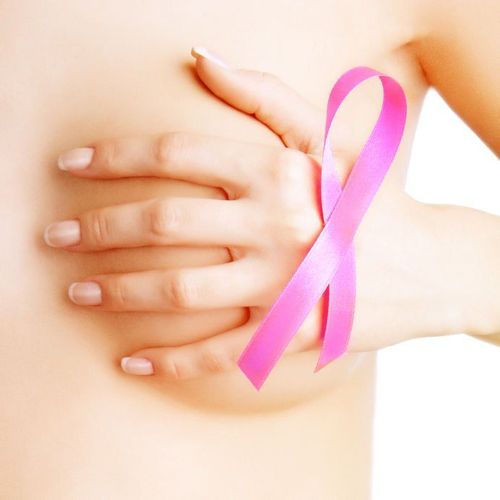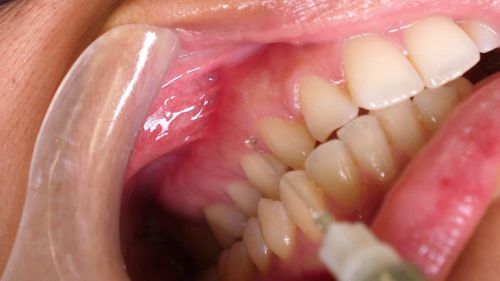This is an automatically translated article.
The article was written by TS.BS Bui Hanh Tam - Anesthesiologist, Resuscitation and Pain Treatment, Department of Anesthesiology and Anesthesia - Vinmec Times City International HospitalUse a flat mirror to self-hypnotize with virtual images to trick the patient's brain into believing that the patient is observing the chest that is no longer there. Then the patient's brain will think that the lost body part still exists and the feeling of frustration, anxiety... even pain will be reduced.
1. Women's psychology when undergoing mastectomy
Mastectomy is a difficult experience, especially when the percentage of women with breast cancer is increasing and it is detected and treated early.
Anatomically, the patient needs time for the surgical area to reduce edema, reduce bruising, the surgical scar will fade over time. However, feelings about a lost body part will last for each individual such as anxiety, frustration, feeling unsafe. Mastectomy often leaves physical and mental changes that take a long time to recover.
Therefore, in the post-operative period, patients need to receive adequate and comprehensive care to avoid long-term sequelae, affecting quality of life, especially chronic pain. Women always respect and love their own bodies, showing that they take care of their external beauty more carefully than men. Mastectomy has placed a psychological burden that is difficult to overcome when they lose a part of their body, although surgeons always try to keep the scar as small and inconspicuous as possible. This loss makes them less attractive than before surgery, that feeling will be heavier if there is no good mental preparation before the surgery and the encouragement and sharing of loved ones.
Women often have many ways to deal with body changes. Many people want to see their body for the first time right after surgery, others want to see their body after surgery with doctors, nurses, best friends, husbands. However, it is not easy for everyone to express their true feelings after surgery. In order to find empathy, patients need to actively share with their loved ones to help prevent the postoperative period from becoming heavy, affecting long-term quality of life. In addition, there are some very small things that can help improve and stabilize psychology related to mastectomy:
Ask the doctor necessary questions before surgery. Talk to a few people who have had mastectomy before. Talk to your loved one, to your husband about the anxiety of losing a body part. Psychotherapy through the flat mirror.

Hình ảnh người phụ nữ ôm ngực, ngồi vuông góc với gương, mặt quay sang nhìn vào gương
2. Principle of mirror therapy
Minimizing or eliminating painful symptoms by means of illusions . Specifically, pain during mastectomy, a woman is always at risk of haunting, even chronic dull pain lasting for many years - called phantom limb pain ("ghost breast pain": temporary call. According to the Vietnamese language, the mammary gland is lost, but the feeling is still there).
The brains of these people send signals through the nerves to the pain site, which in fact no longer exists, causing emotional and physical pain at the scar site. It feels like damage when the mammary gland has not been removed. This pain affects the quality of life, even many people have suffered from depression. Use a flat mirror to self-hypnotize with virtual images to trick the patient's brain into believing that the patient is observing the chest that is no longer there. At that time, the patient's brain will think that the lost body part still exists and the feeling of frustration, anxiety, disappointment... and especially pain will be reduced. Immediately after surgery, some people feel like they don't want to look at the lost body part. This is completely normal. So when you want to look at your body is up to you, but it's best to wait 1-3 days after surgery, when the incision on your chest has improved somewhat. Some people get so upset they get mad at first sight and they wish the surgery hadn't happened! This also speaks to the importance of good mental preparation before surgery. Therefore, instead of looking at the incision, you should look in the mirror, the mirror is placed parallel to the side of the healthy chest. The image in the mirror will calm your brain's unhealthy emotions, helping you to adapt to a new body condition faster and easier. This is a simple, low-cost, easy-to-implement method. This mirror therapy only applies to unilateral mastectomy, suitable for those who want to see their body for the first time after surgery. Mirror therapy should be done every day, 15-20 minutes each day, while listening to soft music while performing. And it can be done even longer, to prevent chronic pain after mastectomy, if any.
Vinmec International General Hospital is one of the hospitals that not only ensures professional quality with a team of leading medical doctors, modern equipment and technology, but also stands out for its examination and consultation services. comprehensive and professional medical consultation and treatment; civilized, polite, safe and sterile medical examination and treatment space. Customers when choosing to perform tests here can be completely assured of the accuracy of test results.
Please dial HOTLINE for more information or register for an appointment HERE. Download MyVinmec app to make appointments faster and to manage your bookings easily.













